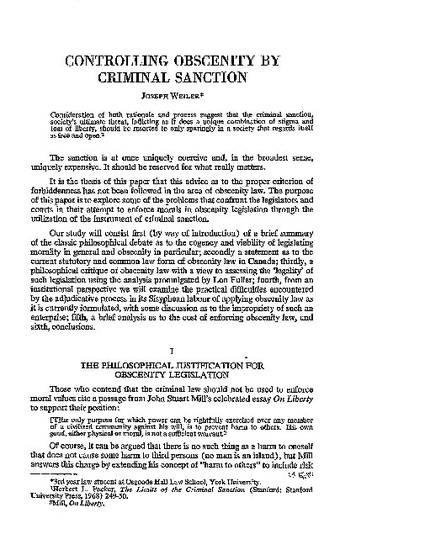
- Canada; Criminal justice; Obscenity law
- Criminal Law and
- Law
Consideration of both rationale and process suggest that the criminal sanction, society's ultimate threat, inflicting as it does a unique combination of stigma and loss of liberty, should be resorted to only sparingly in a society that regards itself as free and open.' The sanction is at once uniquely coercive and, in the broadest sense, uniquely expensive. It should be reserved for what really matters. It is the thesis of this paper that this advice as to the proper criterion of forbiddenness has not been followed in the area of obscenity law. The purpose of this paper is to explore some of the problems that confront the legislators and courts in their attempt to enforce morals in obscenity legislation through the utilization of the instrument of criminal sanction. Our study will consist first (by way of introduction) of a brief summary of the classic philosophical debate as to the cogency and viability of legislating morality in general and obscenity in particular; secondly a statement as to the current statutory and common law form of obscenity law in Canada; thirdly, a philosophical critique of obscenity law with a view to assessing the 'legality' of such legislation using the analysis promulgated by Lon Fuller; fourth, from an institutional perspective we will examine the practical difficulties encountered by the adjudicative process in its Sisyphean labour of applying obscenity law as it is currently formulated, with some discussion as to the impropriety of such an enterprise; fifth, a brief analysis as to the cost of enforcing obscenity law, and sixth, conclusions.
